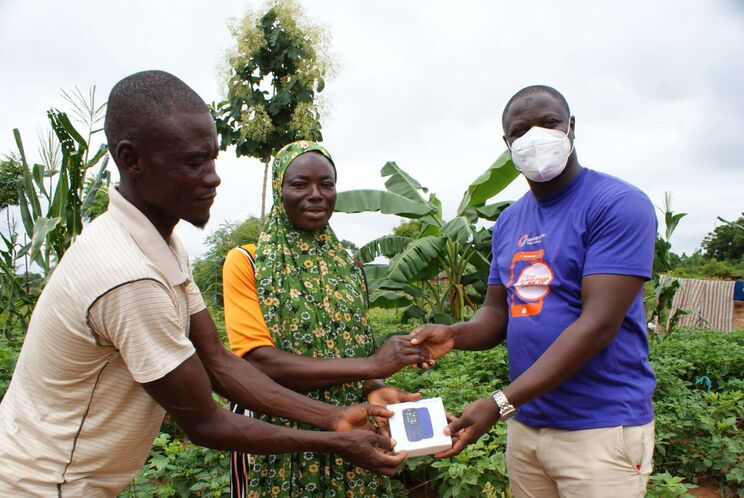Farmers in Ghana are increasingly hit by drought, flooding and pests. Using satellite data, and in person visits to farmers fields to calculate crop loss, Opportunity International can help farmers manage and protect themselves against the increasing effects climate change.
Our Roots of Change project in Ghana was recently featured in Reuters, which reported on one specific and very important element of the project which looked at how our agricultural products and services can help best support rural farmers against the effects of Climate change.
Below is an extract from the report. The full report By Kagondu Njagi can be read here.
Ghana's worsening floods and droughts have made growing fruit and vegetables harder, and when the staple maize and rice crops are hit as well, families like Fuseina’s are left with meagre yields of grains that lack essential nutrients and vitamins.
But in March last year, Fuseina joined a free crop insurance project that tries to ensure farmers aren't thrown into poverty by the extreme weather, pest infestations and crop disease outbreaks becoming increasingly destructive as global temperatures rise.
Now when long dry spells destroy a share of the crops on Fuseina's 6.5-acre (2.6-hectare) farm, her family can still eat healthily.
Since joining the pilot 'Roots of Change' insurance project , she has received two pay-outs of up to 200 Ghanaian cedis ($33), covering 80% of the value of her crop losses to drought.
I cannot wait to plant new crops on my farm because I know I will get returns whether there is bad weather or they are attacked by pests and diseases, thanks to crop insurance. Before the programme I never felt excited. - Fuseina

Part of a larger initiative, 'Roots of Change' by Opportunity International, the insurance programme uses farmland and crop data collected by the agriculture ministry to help provide cover for about 1,360 farmers in northern Ghana.
Since it launched last year, the project has paid out 7,000 cedis ($1,120) to more than 300 farmers, according to Ebenezer Laryea, the Ghana head of agricultural businesses at Opportunity International, which pays the farmers' insurance premiums.
Some farmers invest the money they get through the programme into community savings schemes, where people pool their funds to be used by individual members when they need it. 'Crop insurance is a game changer,' Laryea said, particularly in a country where about half of people make their living from farming.
MORE STABLE FARMING
As temperatures rise in Ghana as a result of climate change, the country's northern region no longer gets two rainy seasons of a few months each but one five-month-long wet season, which can flood fields and drown crops, Laryea said. The rest of the year is dry, leaving crops parched.
Food and agriculture minister Owusu Afriyie Akoto has said crop insurance could make farming a more stable livelihood and attract more young people to an occupation now dominated by the aging:
It is not just about building resilience against erratic weather but also making agriculture attractive to youth and women by making it a financial asset.

Fuseina said she hopes crop insurance will catch on in Ghana - "I felt like nobody when I did not have crop insurance. But now I feel like somebody."
------
Read the full article written by Kagondu Njagi on Reuters.com